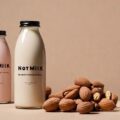Breastfeeding is a natural and often essential part of motherhood, but it’s shrouded in a plethora of myths that can confuse and deter new mothers. In this article, we aim to dispel some of the most common breastfeeding myths and provide clarity to support the journey of breastfeeding mothers everywhere.
Myth #1: Breastfeeding is Easy and Natural for All Mothers
While breastfeeding is a natural process, it does not come easily to every new mother. Many factors, such as the baby’s latch, milk production, and physical discomfort, can make breastfeeding a challenging endeavor. It’s important for mothers to seek support and guidance from lactation consultants or healthcare providers if they face difficulties.
Myth #2: Breastfed Babies Need Additional Water
Another common myth is that breastfed babies require extra water for hydration. Breast milk is actually composed of about 88% water and provides all the hydration a baby needs. Introducing additional water can disrupt the infant’s nutrient intake and digestion.
Myth #3: You Can’t Breastfeed if You Have Small Breasts
The size of a mother’s breasts has no correlation with her ability to produce milk. Breast size is largely determined by fatty tissue, whereas milk production is facilitated by glandular tissue. Mothers with smaller breasts can produce just as much milk as those with larger breasts.
Myth #4: If Breastfeeding Hurts, You’re Doing It Wrong
While discomfort is common in the first few days of breastfeeding as both mother and baby adjust, persistent pain is not normal. Pain can be due to various issues, such as an improper latch or an infection like mastitis. Addressing these issues early on with the help of a healthcare professional is crucial for a positive breastfeeding experience.
FAQ: Breastfeeding Myths and Facts
Is it true that breastfeeding helps you lose pregnancy weight faster?
Yes, breastfeeding can help some women lose weight post-pregnancy due to the extra calories burned during milk production.
Can eating certain foods improve the quality of my breast milk?
While a well-balanced diet is important for your health, there is no specific food that can significantly improve the quality of breast milk. The human body is well-equipped to produce high-quality milk for your baby.
Will breastfeeding spoil my baby?
No, breastfeeding does not spoil your baby. It provides both nutrition and comfort, helping to strengthen the bond between mother and child.
Do I have to avoid spicy foods while breastfeeding?
Most babies tolerate a variety of foods. If you notice your baby is fussy or has a reaction after you consume certain foods, you might want to avoid them.
Is it okay to breastfeed my baby to sleep?
Many mothers find that breastfeeding their baby to sleep works well for them. It’s a personal decision and what matters most is finding a routine that works for you and your baby.









